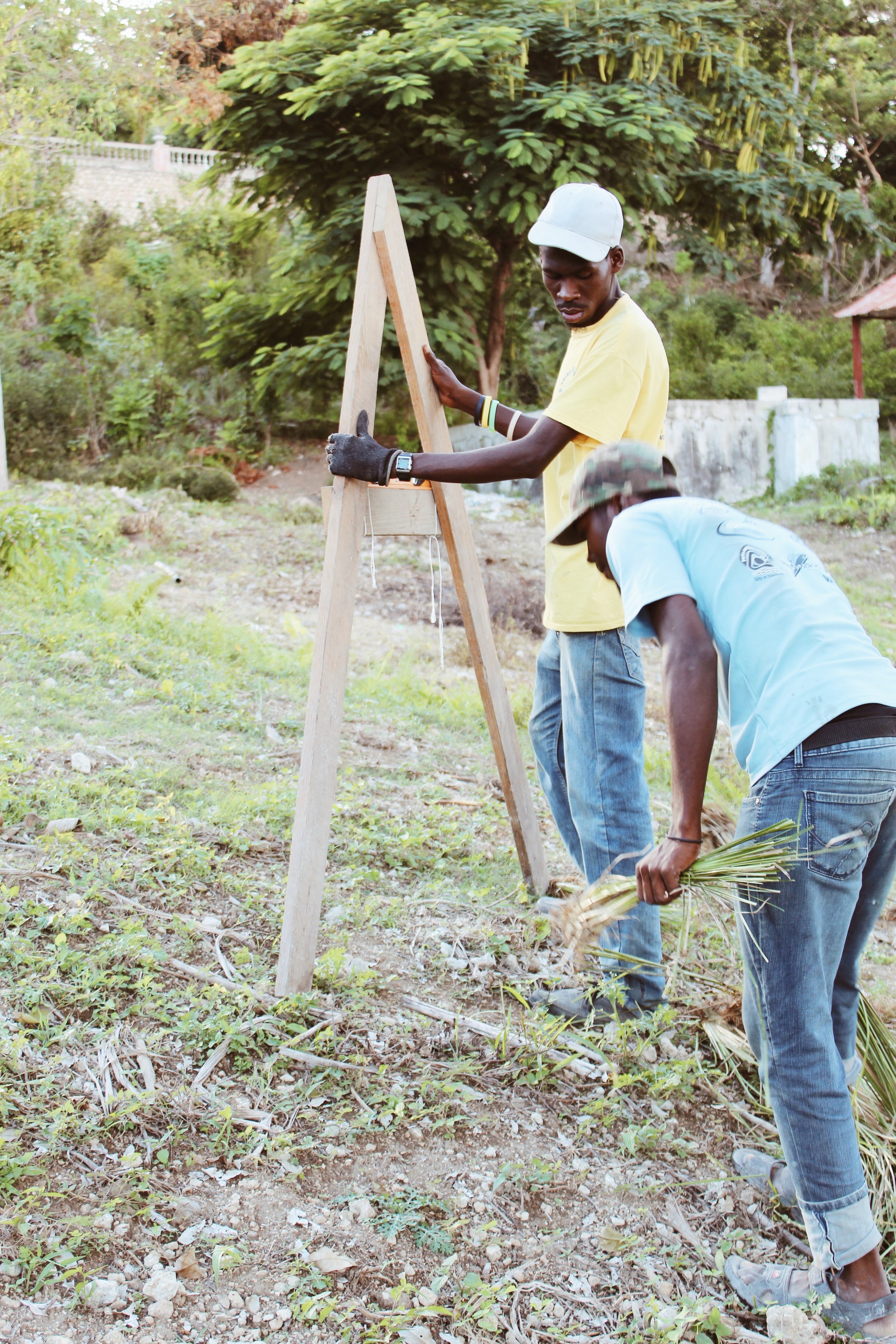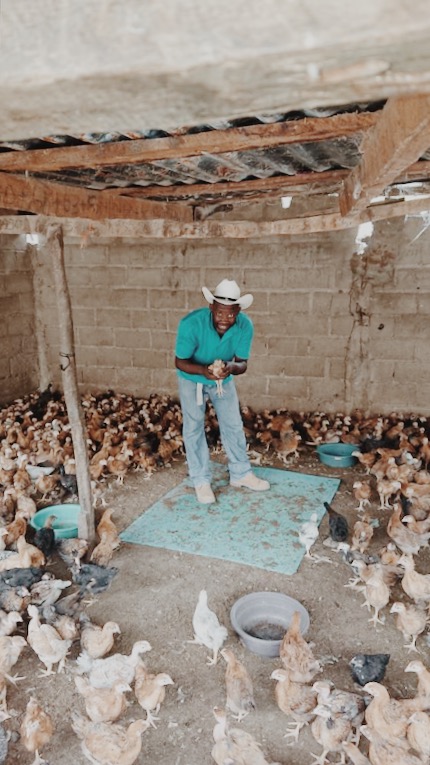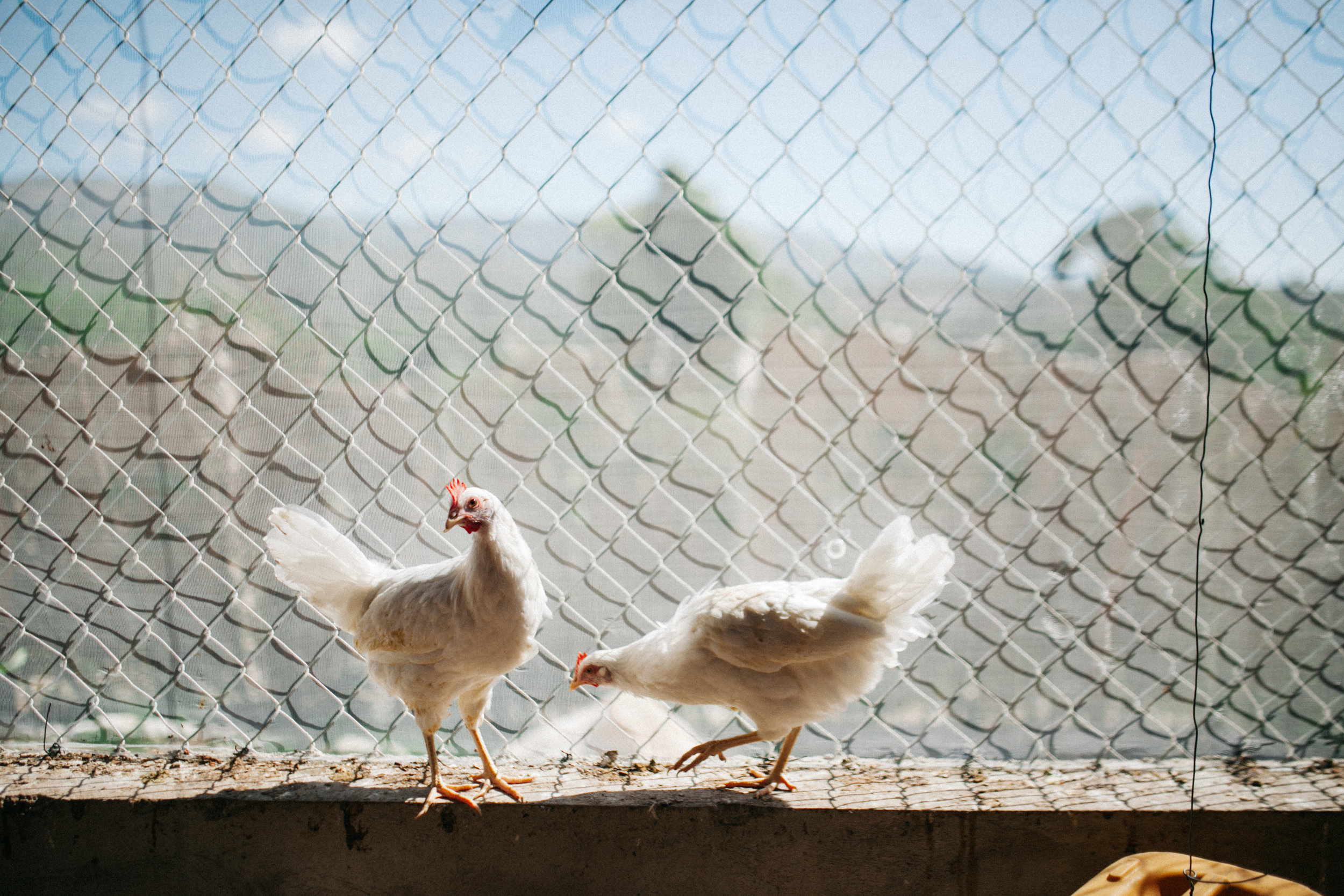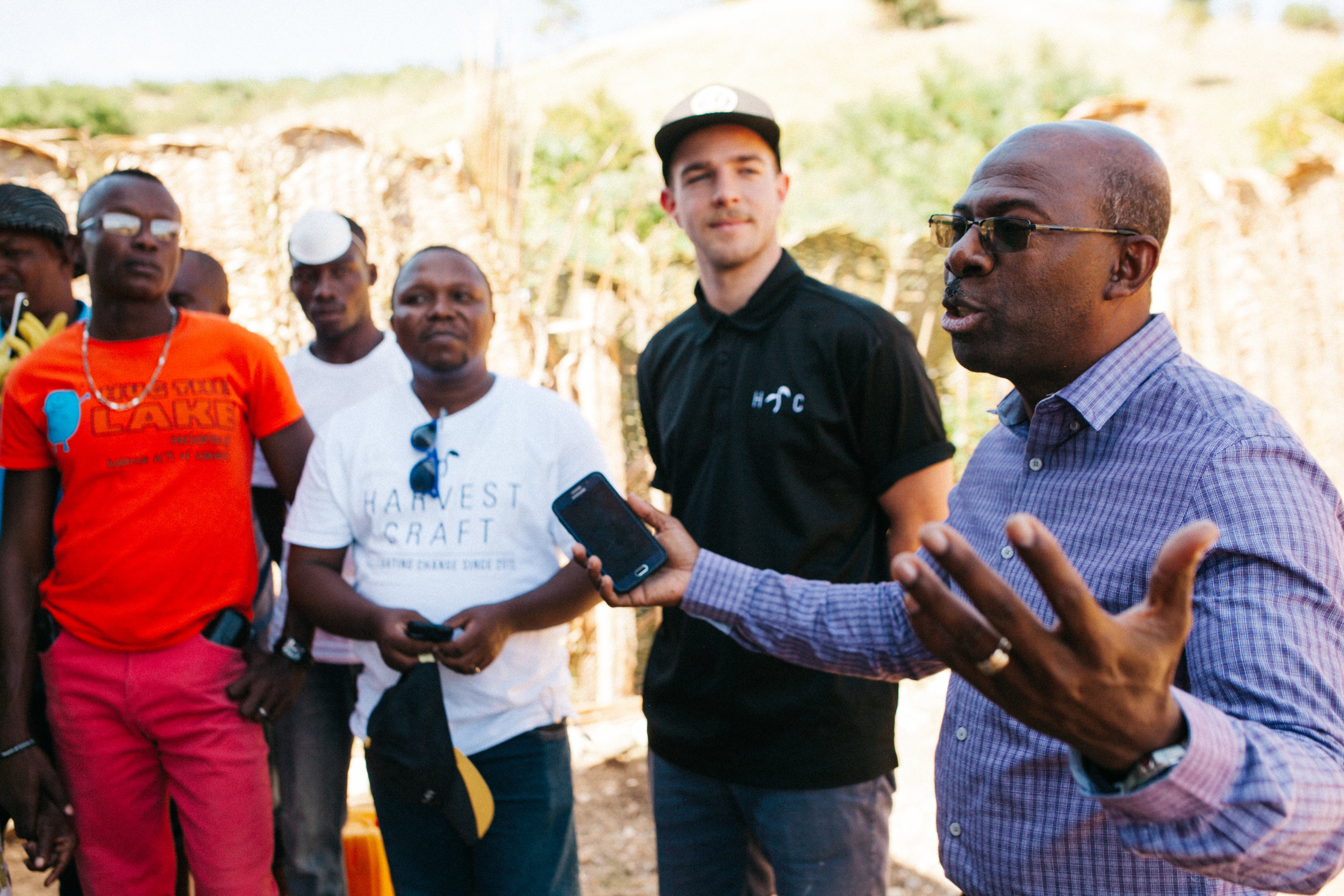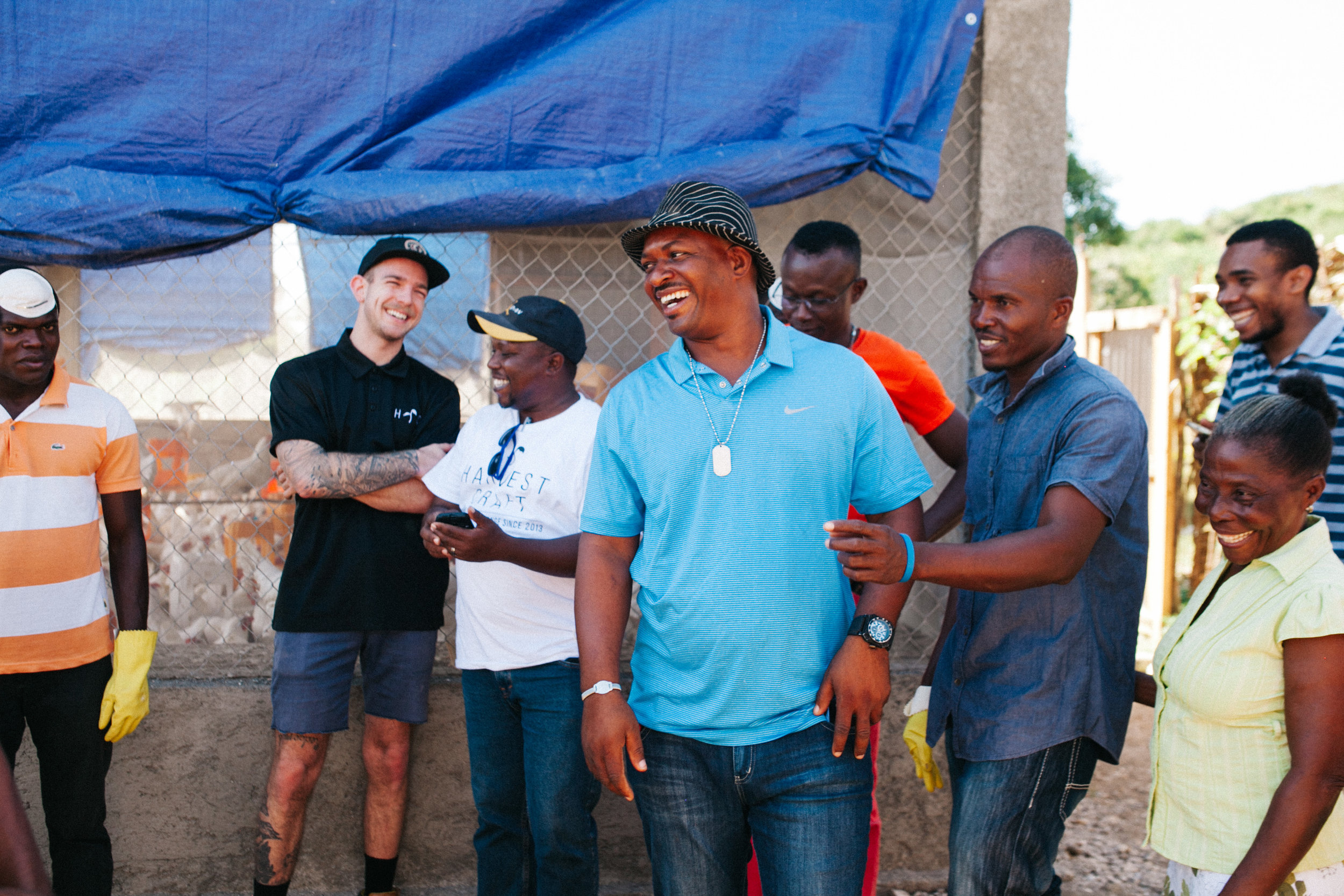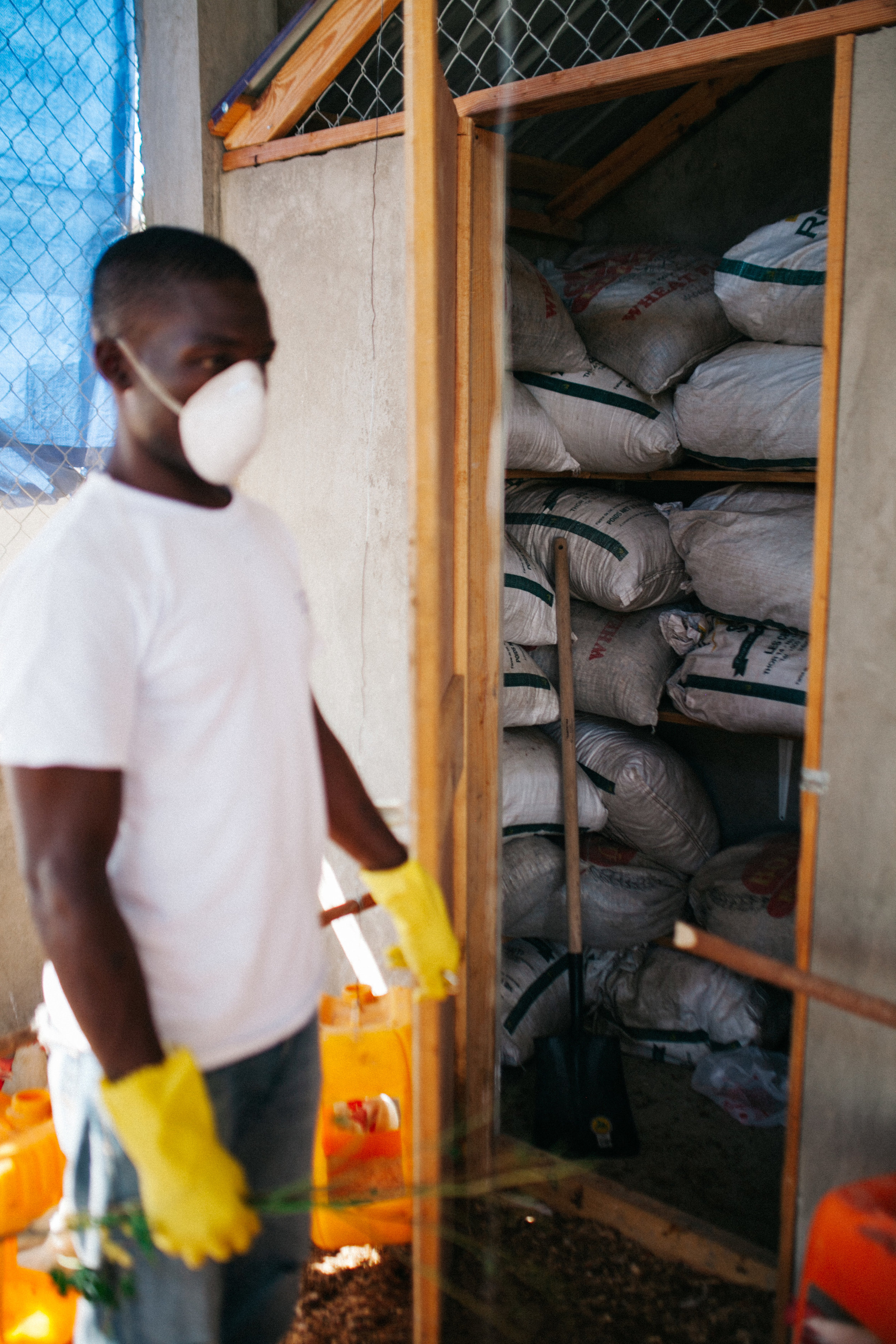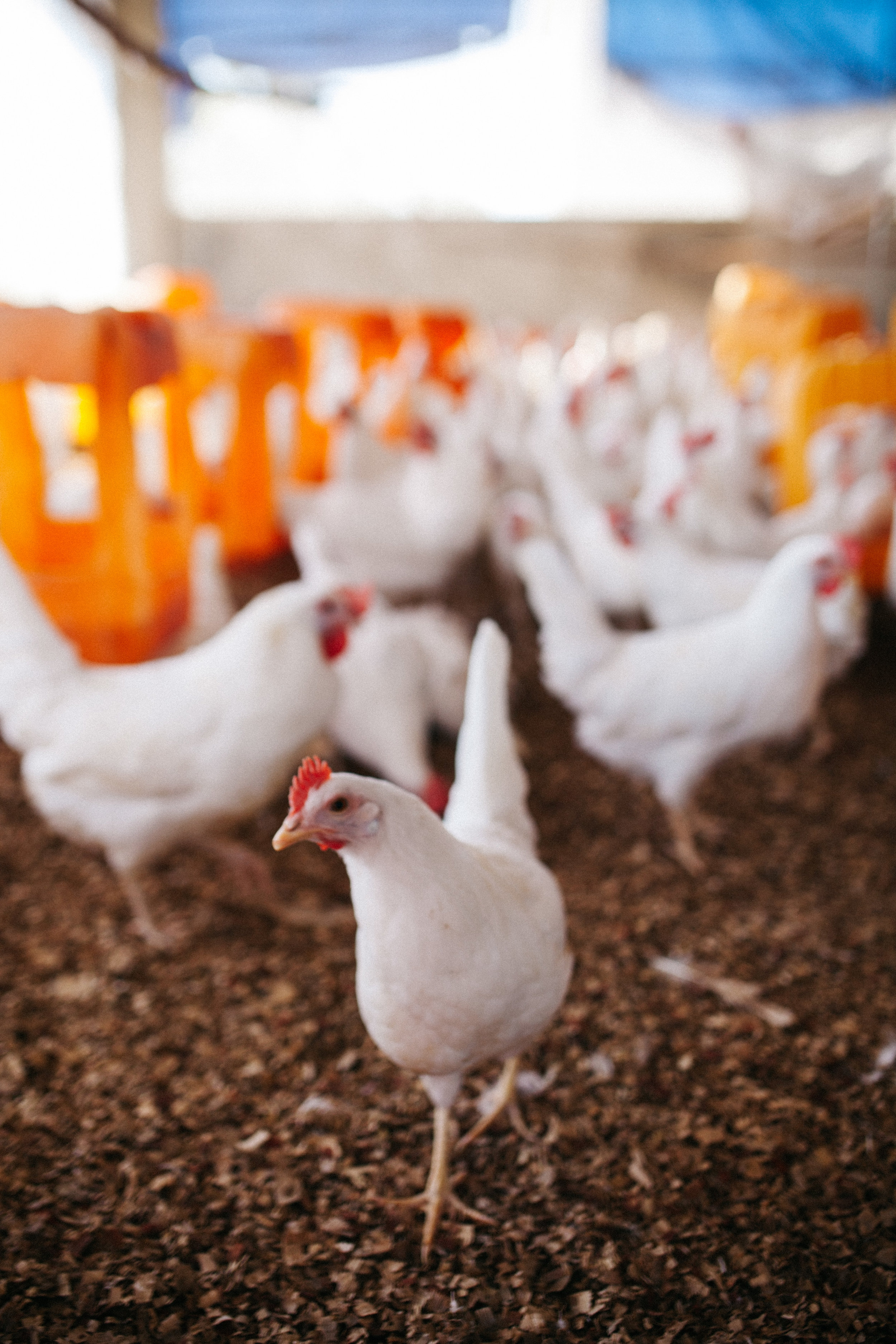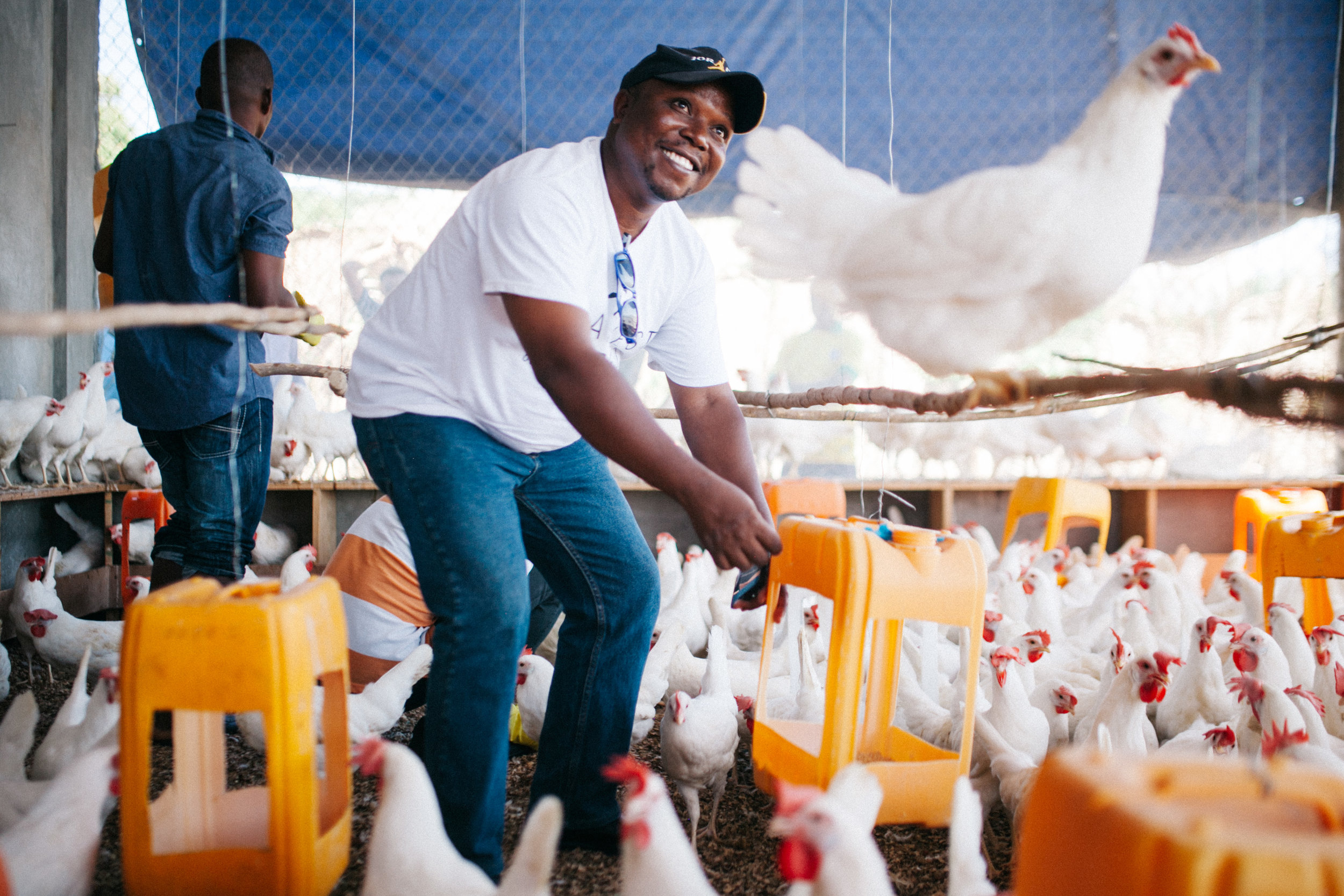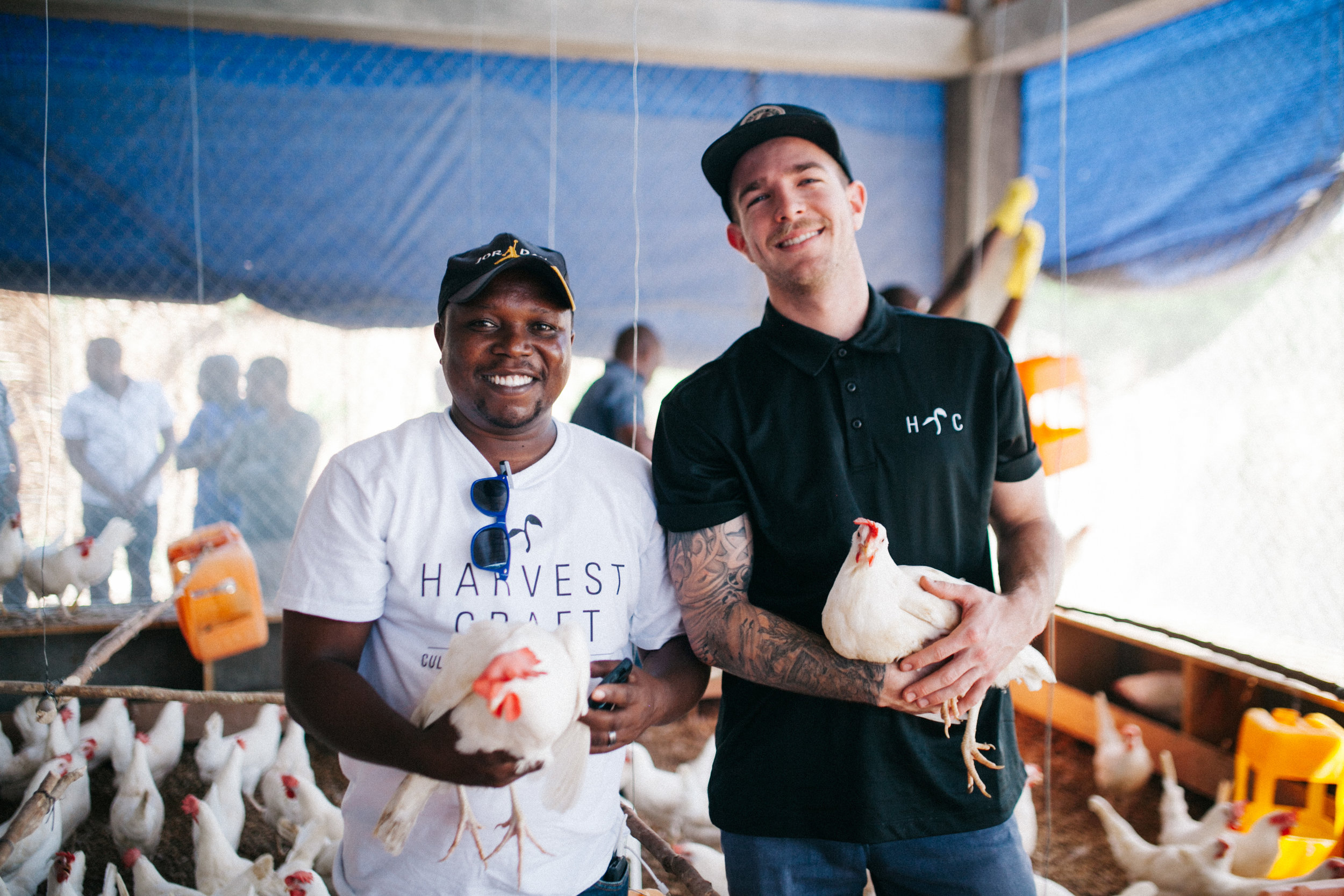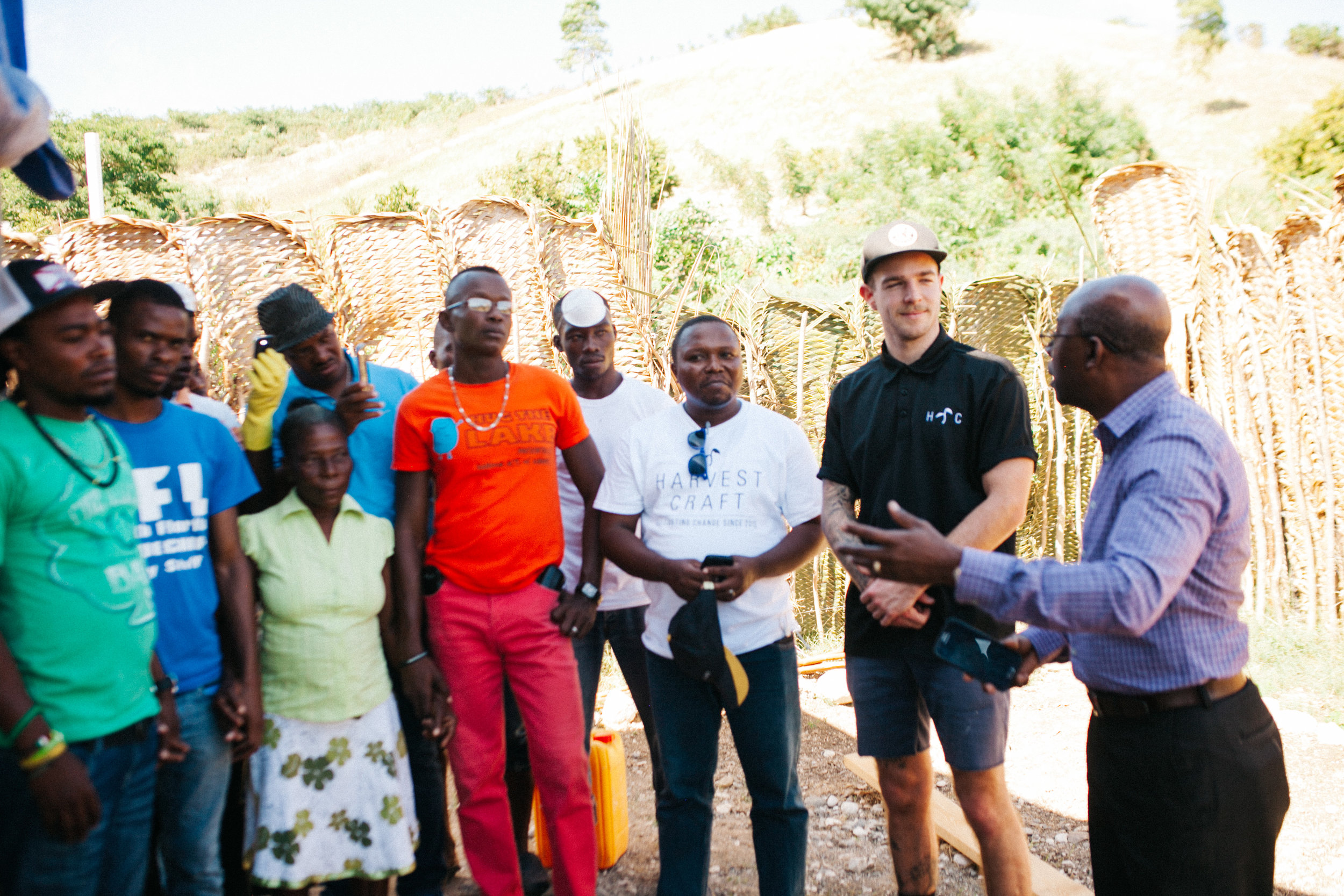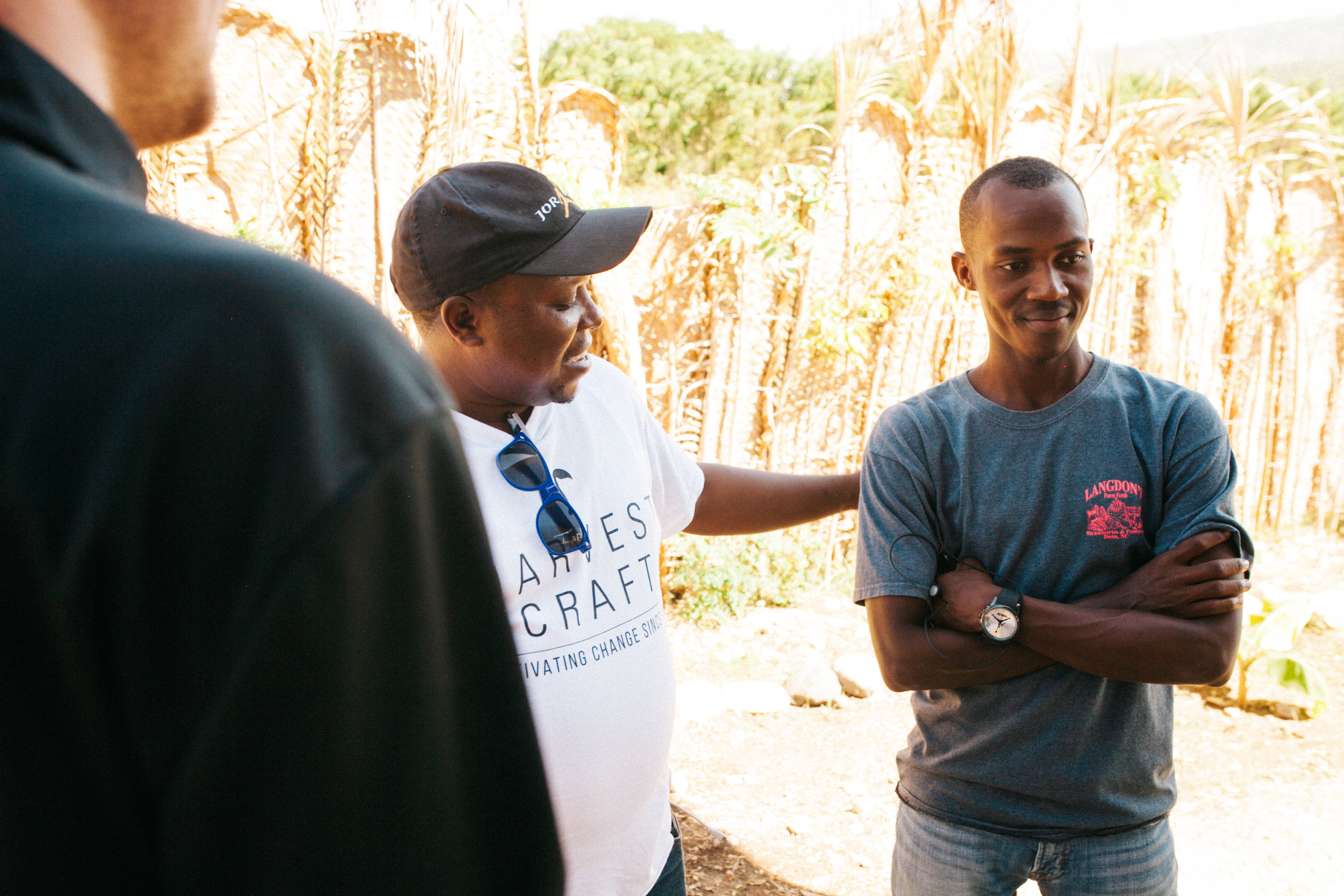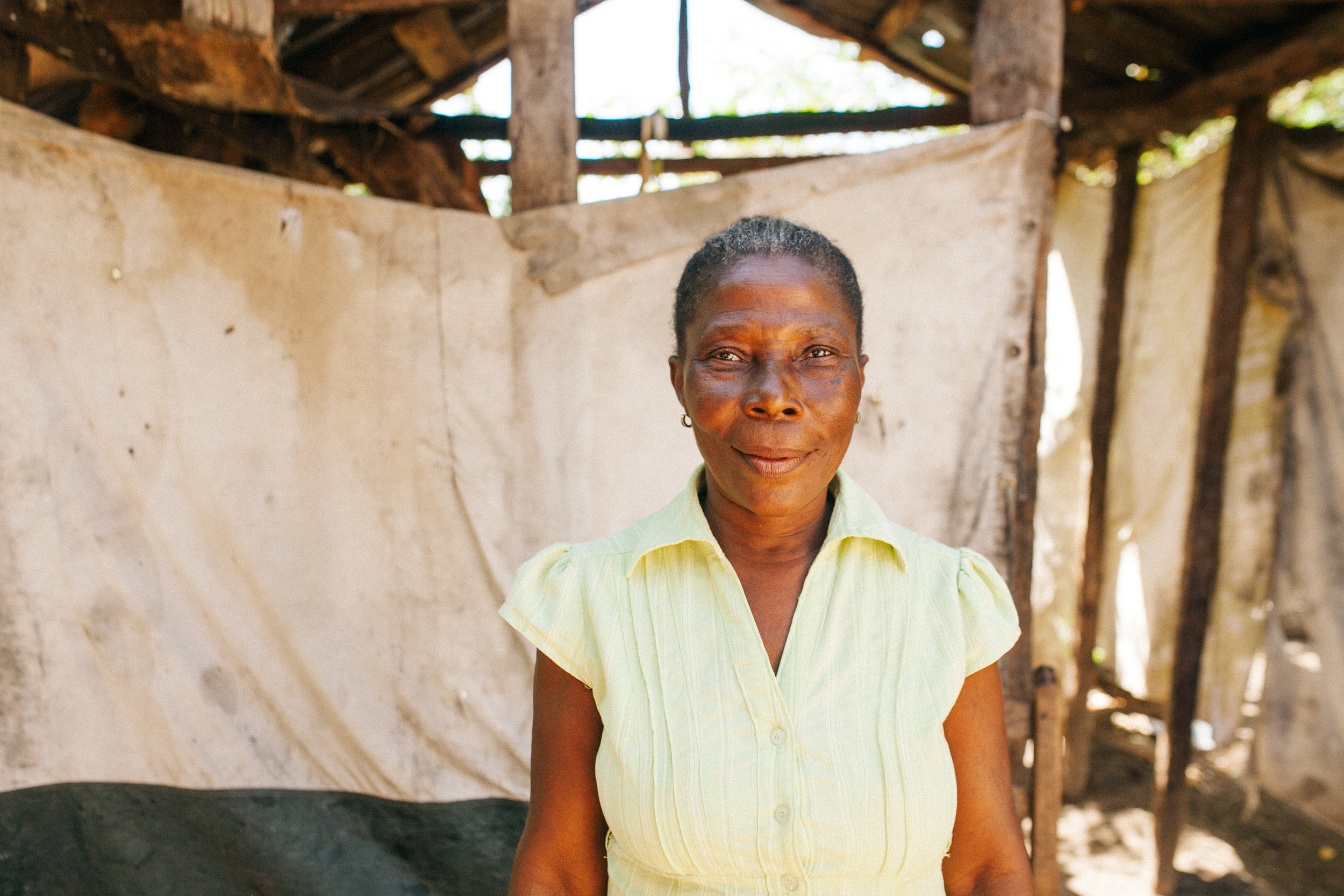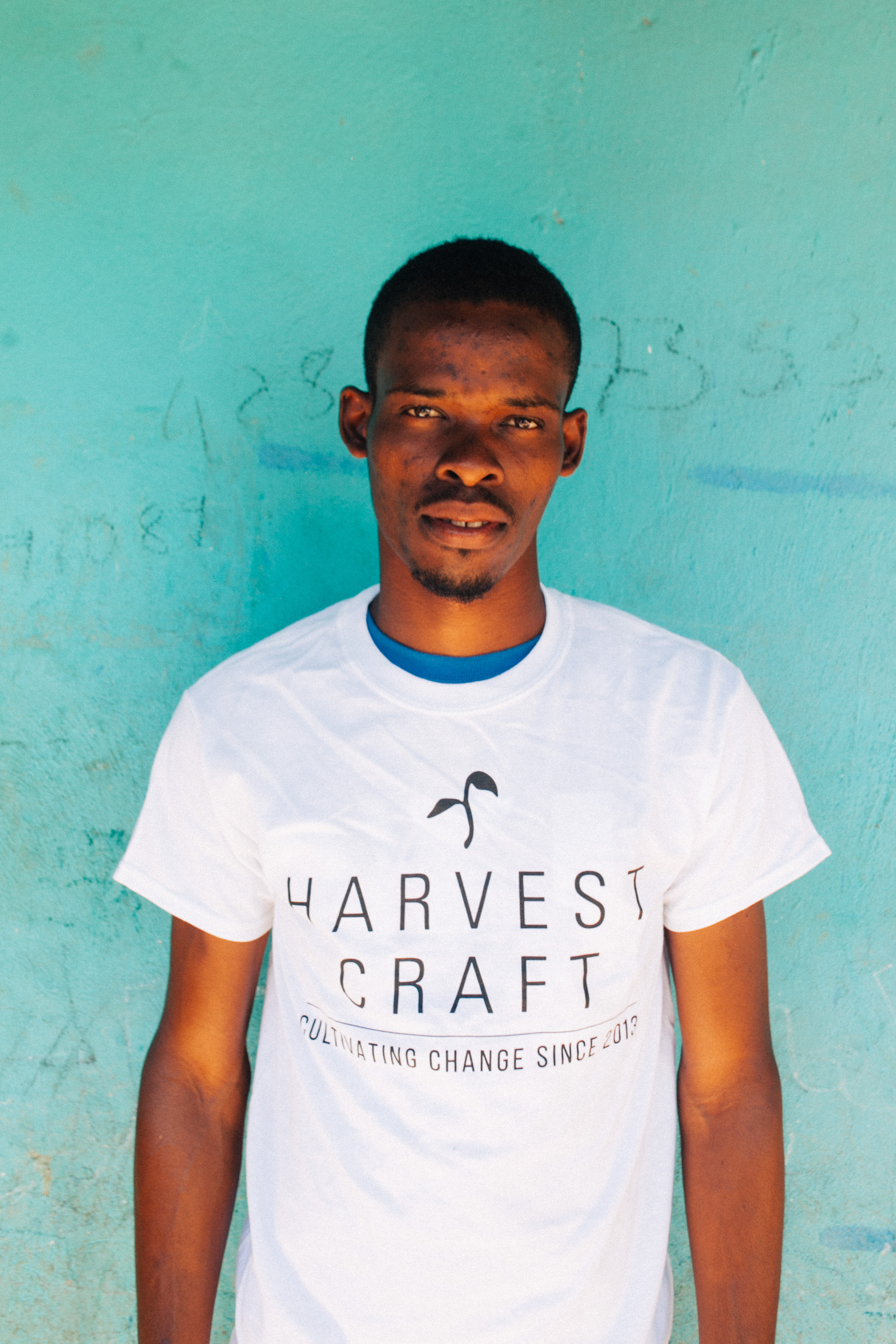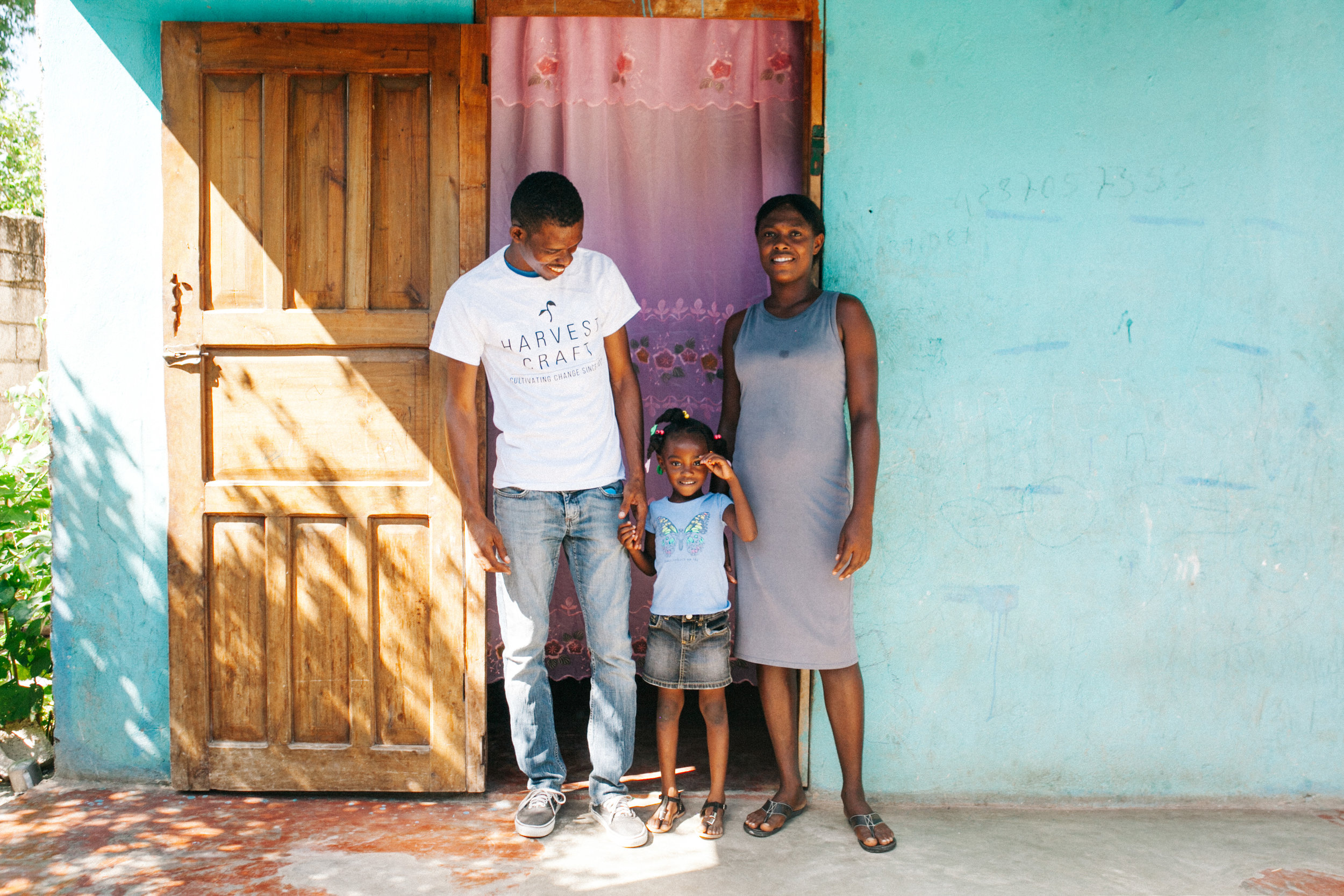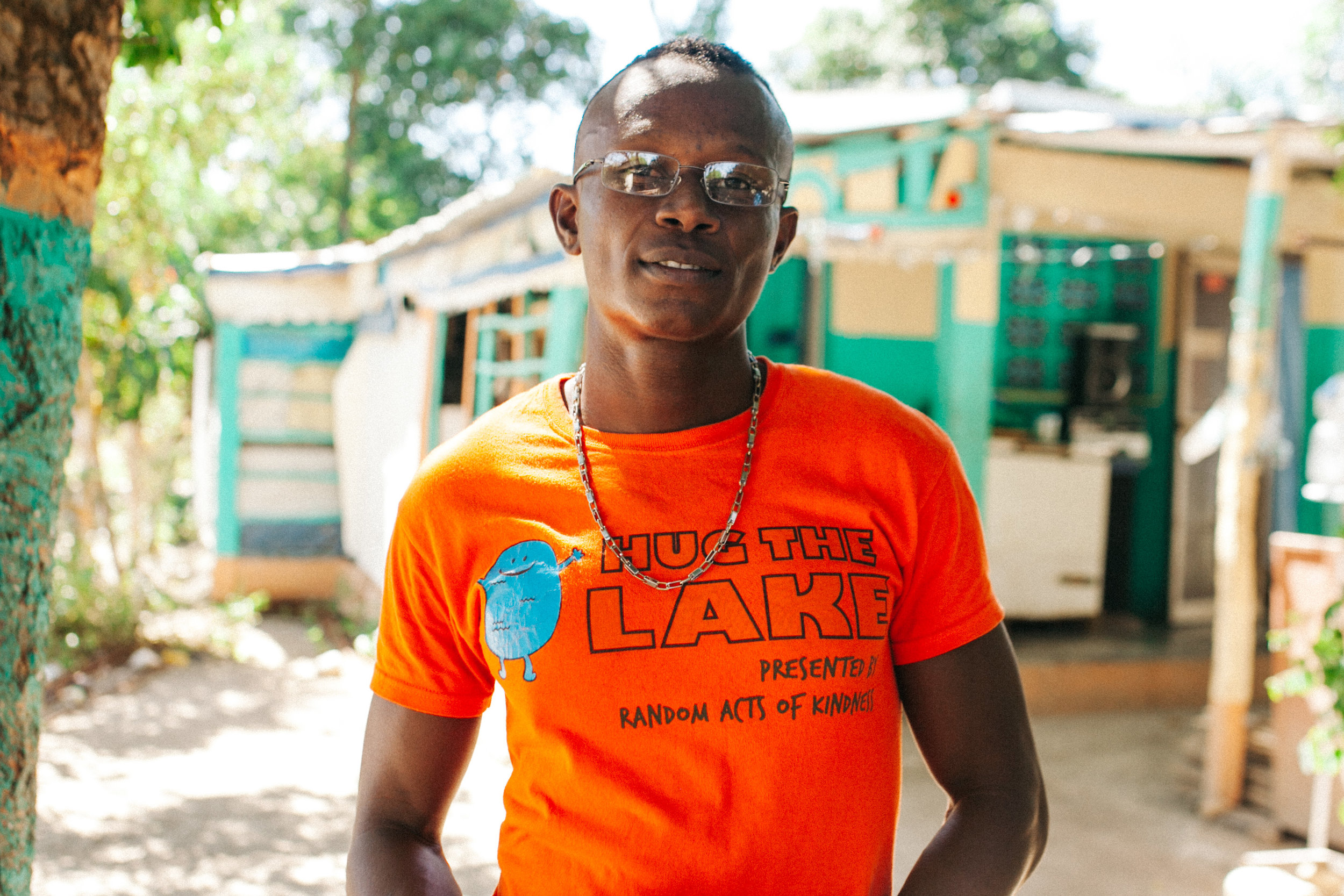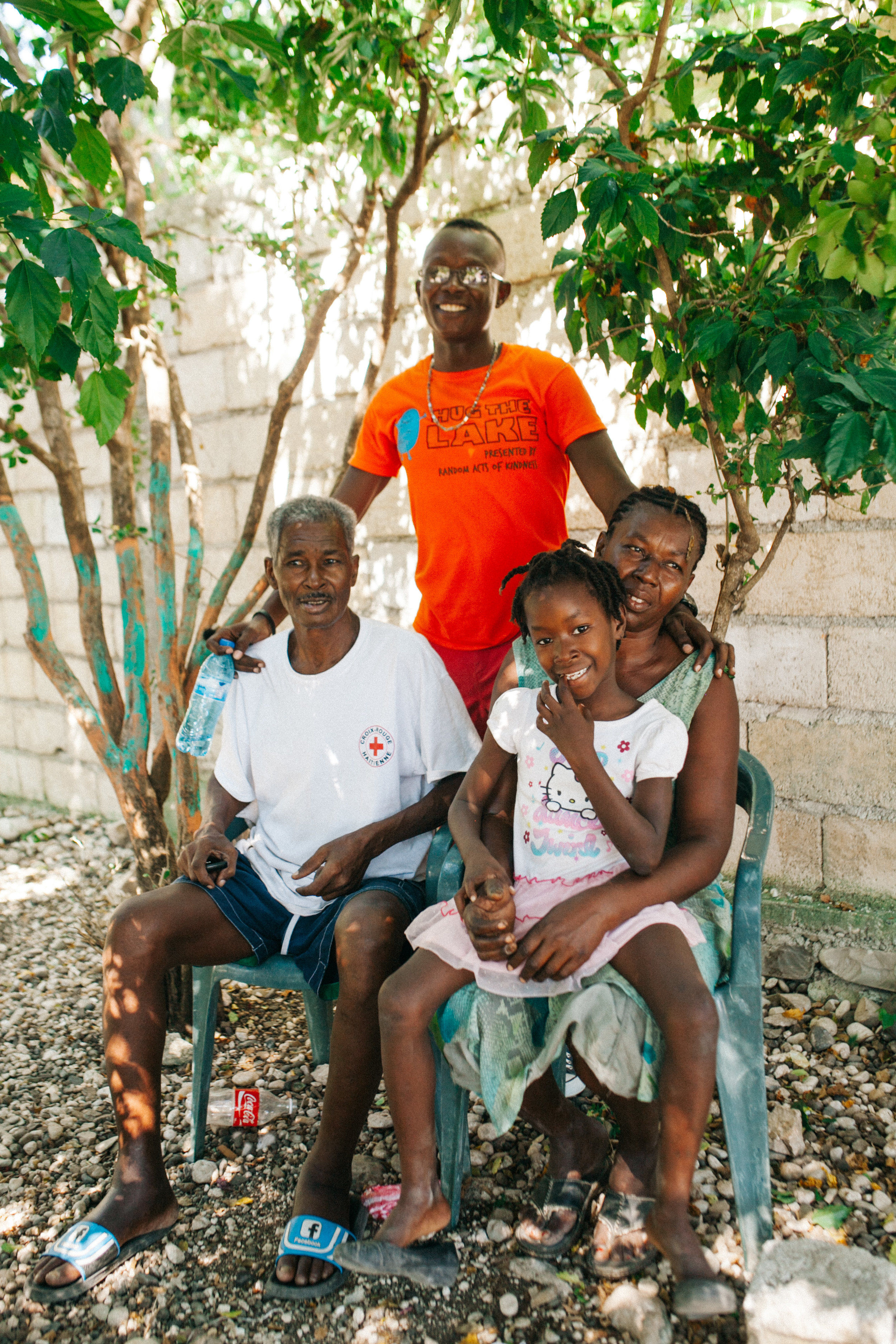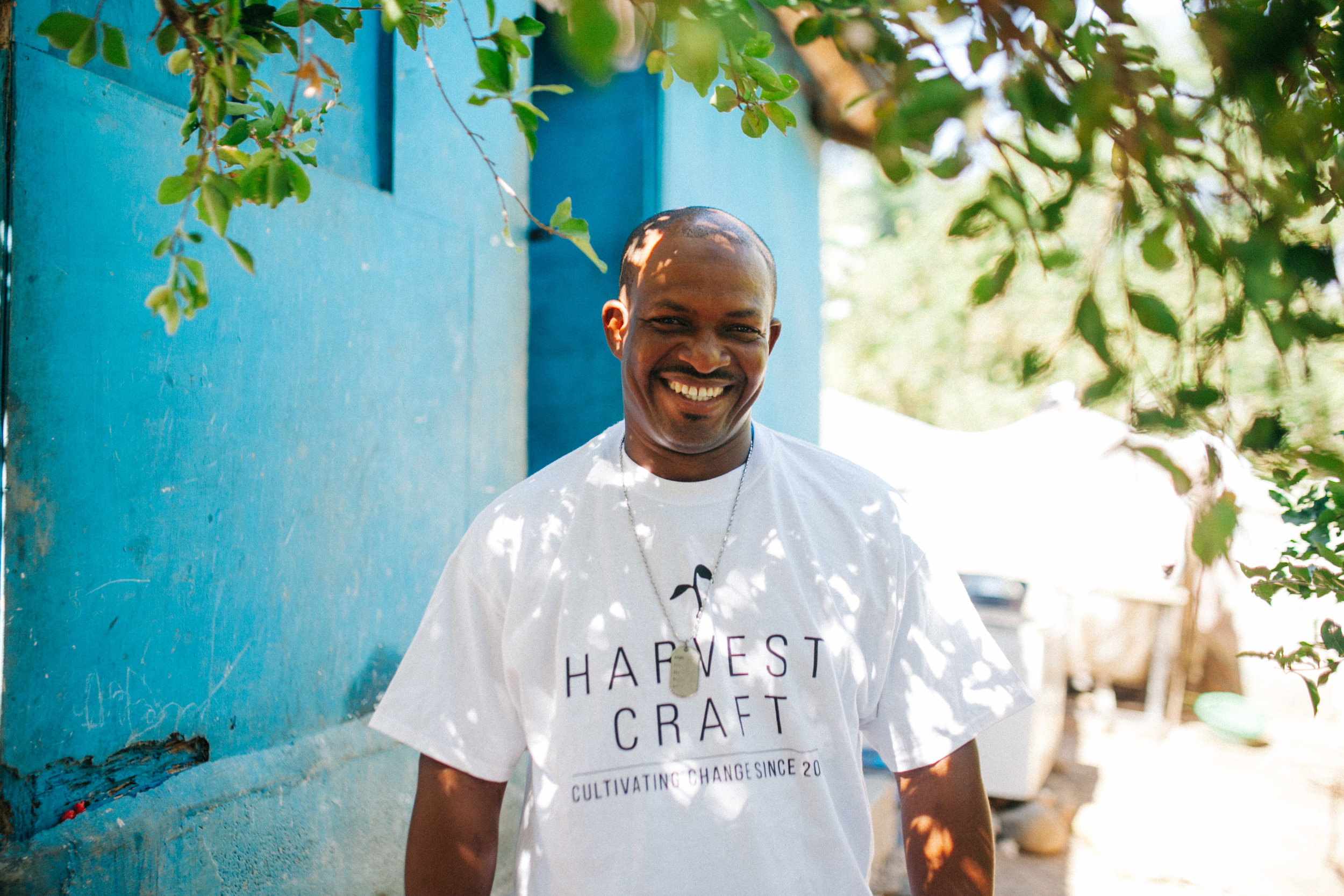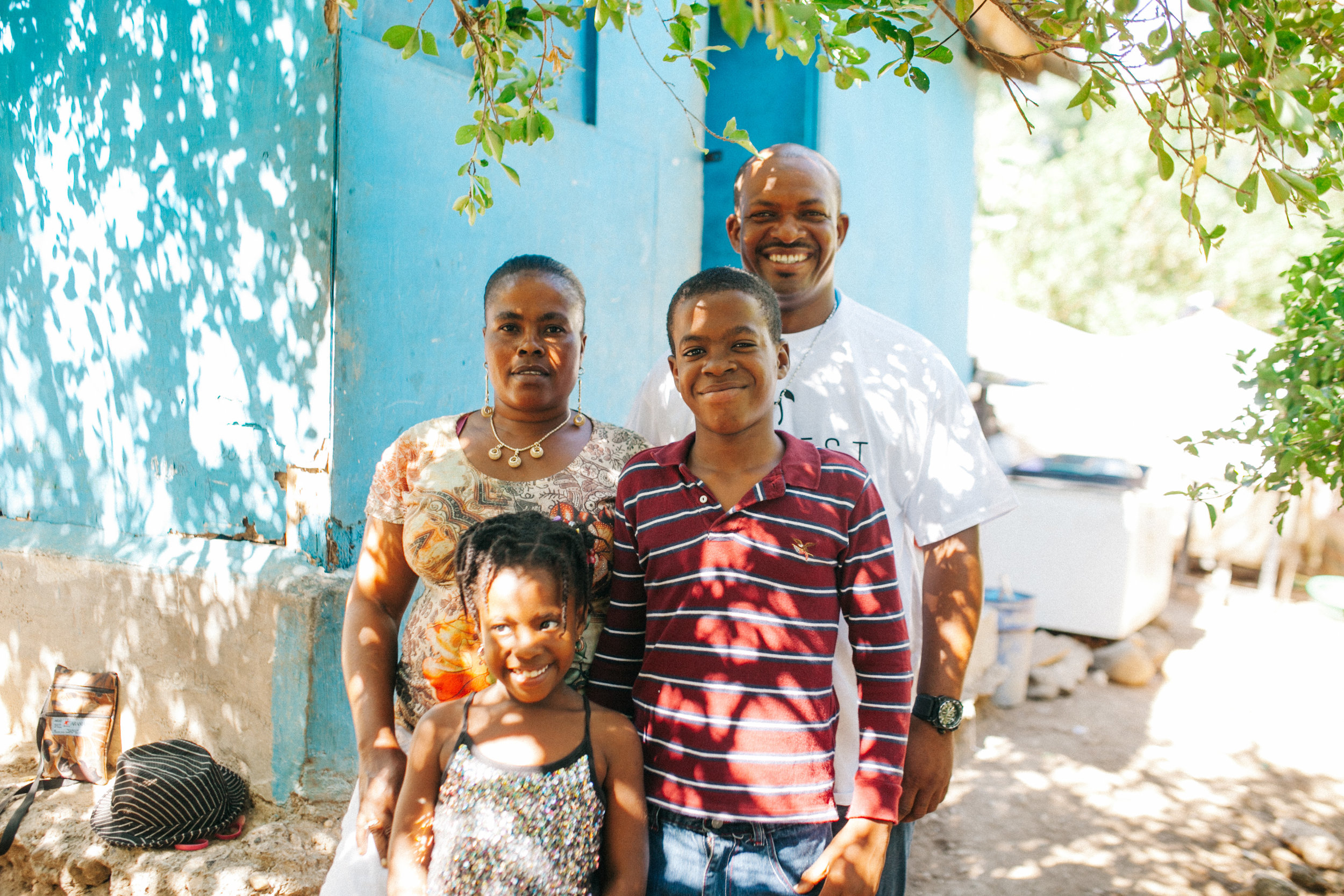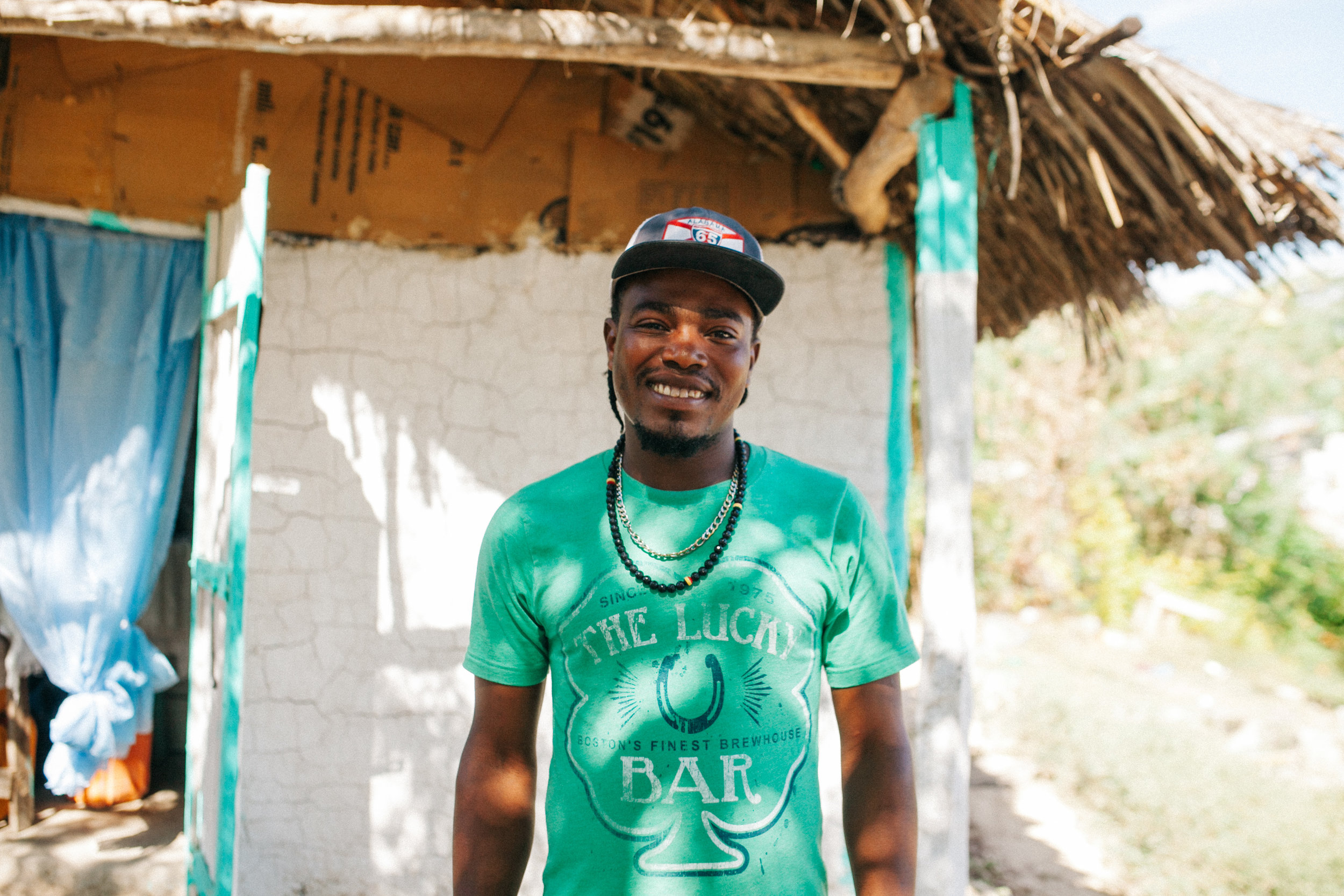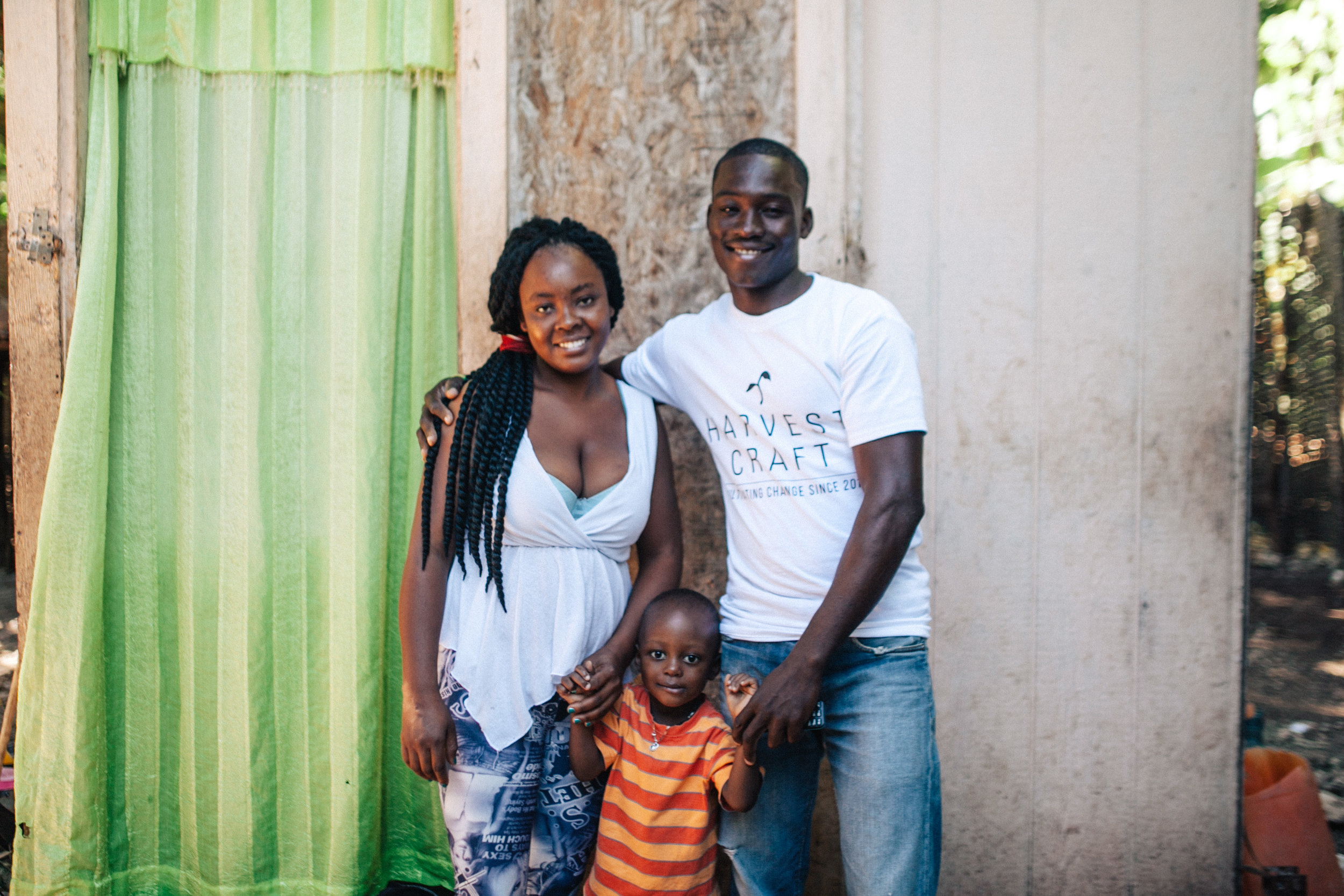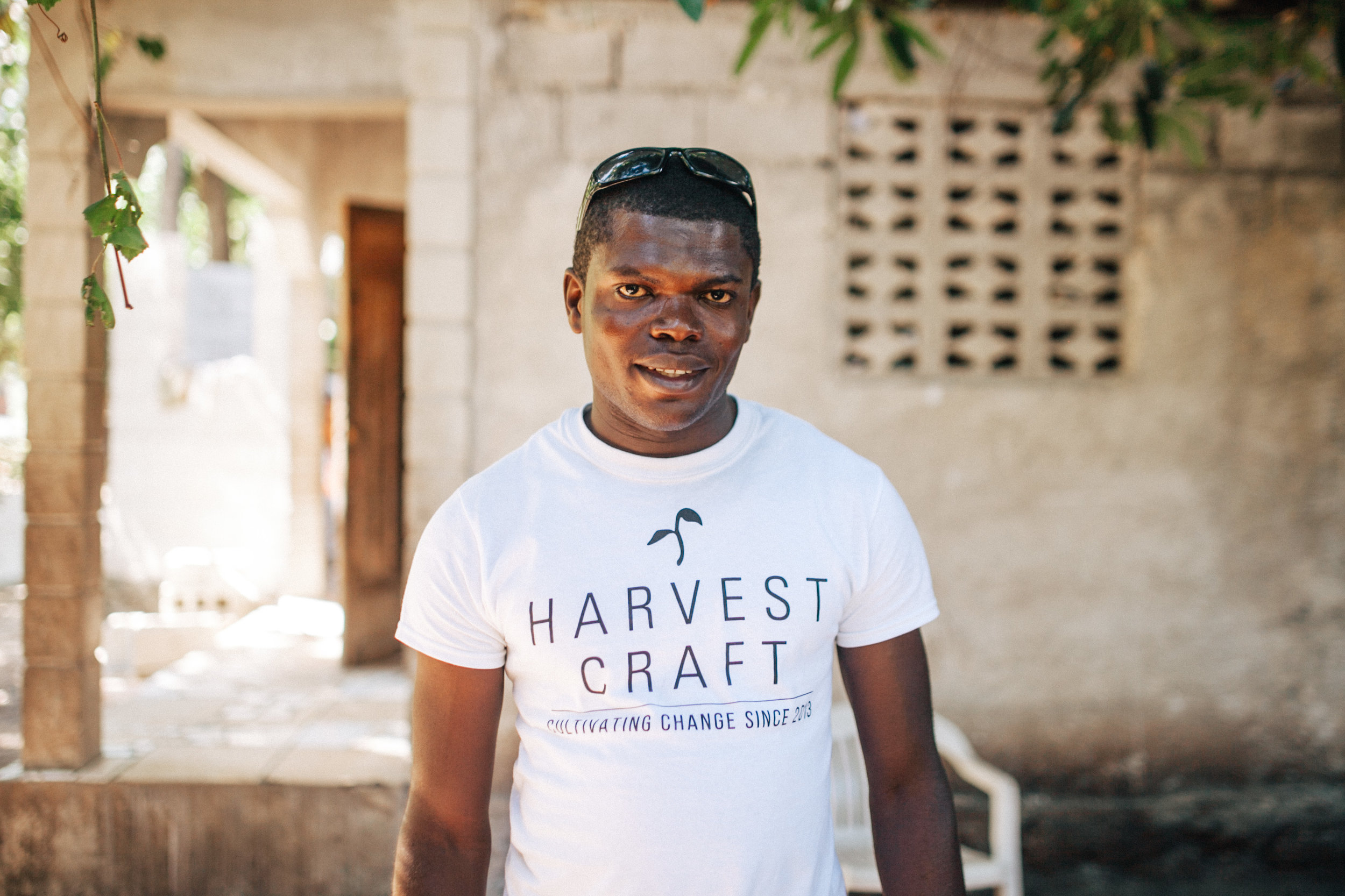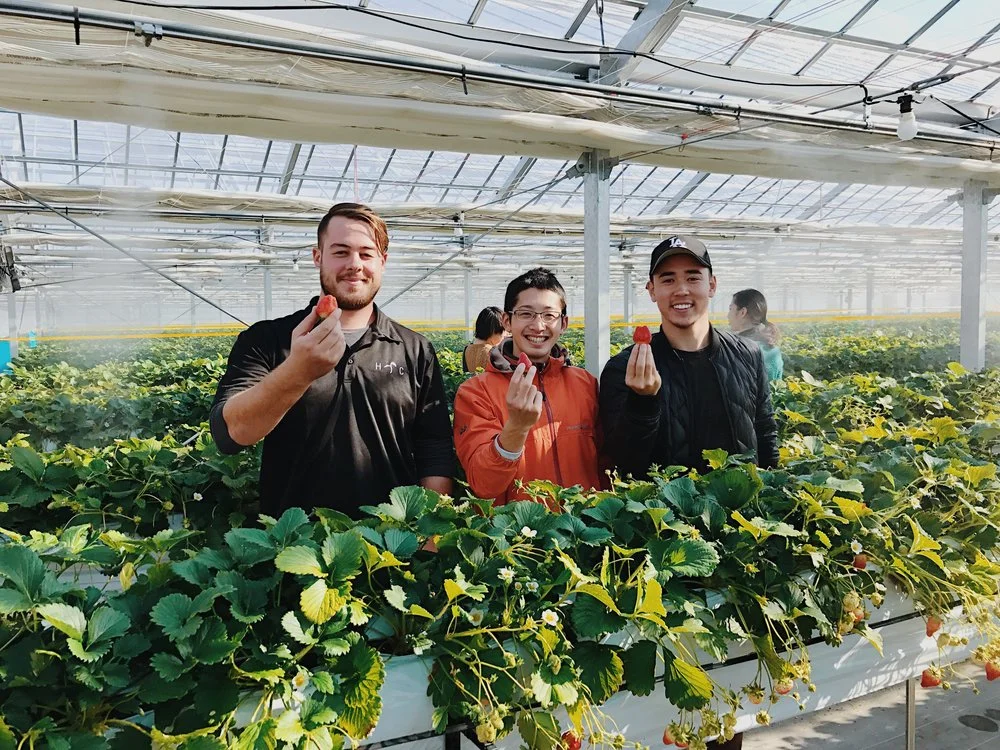
Short stories, perspectives and insights from our team, friends and other experts.
Eating Locally : how we are attempting to make that possible in Haiti
Eating Locally : how we are attempting to make that possible in Haiti
At the Haiti Center for Agroecology (HCA), we are focused on educating farmers, equipping them with skills and resources, and ultimately empowering them to be able to produce more food and be less dependent on off-farm jobs, international food aid, and handouts.
Most subsistence farmers around the world, especially in Haiti, do not produce enough food to sustain themselves and their families, let along their local community. Therefore, most folks will work additional jobs, or simply rely on foreign aid. Our results from community surveys in Haiti show that 98% of the communities we work in engage in some form of agriculture, and only 17% of those producers yield enough food to provide sufficiently for their family (average family size is five people). As a result, 71 % of these families have an additional source of income, and as a farmer it is important to be able to focus all of your energies on farming, especially in a rural and developing country where access to automation and machinery to complete simple farm tasks is limited.
Where does Harvest Craft and the HCA come in? We believe there is potential on these farmers’ land to be able to generate enough food for their families and spark the local economy, but a knowledge gap exists. Many of the environmental and biological (e.g. insects, fungal, bacterial) problems these farmers face do not have “contextualized” solutions, meaning they rely on information coming from other areas in the world to try and solve their issues. The inherent problem in this, is that solutions to various agricultural problems do not conform to a “one-size-fits-all” model. There are variations in microclimates, ecological systems, soil type, topography, hydrology, etc. around the globe, let alone just the different regions in Haiti. The HCA exists to educate and empower farmers where they are at; to provide solutions to issues they have, in the context of their production system.
The HCA employs local Haitian agronomists to conduct monthly “farmer meetings” where education is not only done in their native tongue, but in their native soils. These Haitian agronomists have traveled the world and received graduate degrees in vegetable production, climate science and sustainable agriculture. Their passion has brought them back to their local community, to help support their local farmers, in order to promote their local economy. This has a tremendous impact in both the morale of the farmers and their adoption of, what may be, new and alternative practices.
Just this month (May 2019), our agronomists led a demonstration on how to make an organic pesticide/pest repellent from local plants and materials that these farmers have access to. They are now able to manage their pest problems sustainably, with the help of the local biology, instead of imported chemistry (e.g. toxic synthetic pesticides).
As we continue to disperse knowledge, and showcase sustainable production demonstrations, we hope that these farmers will not only adopt these methods, but see a tremendous increase in profits, production, and environmental restoration. Other topics we train on include: soil erosion prevention, water management, biocontrol, nursery production, animal integration, intercropping, agroforestry, and much more. All of which, are topics that have been streamlined to mimic their farming landscape and culture.
So, what is the significance of local education and production? And how does it pertain to you and me where we’re at?
Local agricultural production means a lot of things, but none more than a healthier ecosystem and healthier you. On average, food is traveling hundreds, if not thousands of miles to reach your plate. This cost of transportation is not only being passed onto you as a consumer, but onto our atmosphere in the vast amount of carbon emissions being excreted as it delivers you peaches in the winter, apples in the summer, and bananas all year round. Eating local means mitigating climate change through the reduction of fossil fuel consumption.
But, it also means boosting your health. When we can cut down on the time and distance from harvest to consumption, the food maintains a much higher level of nutrients and all the delicious elements we so enjoy in our food. There is a reason why a tomato grown in your backyard is immensely better tasting (and more nutritious) than the one being picked rock-hard, green in South America and being transported and gassed with ethylene along the way to your dinner plate in the U.S. Eating local means a higher quality of food, and subsequently a higher quality of life.
Lastly, eating local means supporting your local economy and community. In some sense it may appear great to be able to aid in the economic development of many nations by the purchasing the food they produce for us, but this disconnect with our food system and food production has led to its demise. Because you do not see where your food comes from anymore, you have been left to live in ignorance of the poor treatment of your farm workers, animals, and the health of your food with all of the chemicals that are continuously being sprayed on it, not to mention the impact those have on their environment.
A disconnect from your food system, is a disconnect from your community. So, what is the solution? Eat local, and to do this, visit your nearest farmer’s market or seek restaurants that source their food from local growers. By showing up to your neighborhood farmer’s market you can help heal the environment, enhance the quality of your food, and increase the vibrancy, both in culture and economics, of those who live closest to you. You will be engaged in your food system and know so much more about your food, its integrity and safety. As Wendell Berry puts it, you are not just a consumer, but an agricultural participant. Take back your authority and ownership over the food you purchase and enjoy, and do so in a way that supports the health of people and our ecosystems.
As for the HCA, we are hoping to do this here in Haiti. Our hopes in educating the farmers here is to be able to have a lasting and substantial change in this community; one that is holistic, improving their environment, economy, and social equity.
2018 Director's Retreat
2018 Directors Retreat
Our 2018 Annual Retreat
Once a year, a rare feat occurs. All nine members of the Harvest Craft family meet under one roof. This is rare because we have a dynamic team with folks scattered both overseas and across the West Coast of the United States. This annual tradition of taking time to be together has proved beneficial for many reasons. As we gather to “retreat” and reflect on the previous year, we are able to see where we learned valuable lessons, where our successes were made, and how best to strategize moving forward. For the “retreat” is not just a time to rescind, but a time to think ahead; a time to dream, and a time to “advance” the mission of what Harvest Craft is all about: cultivating change.
Goodbye 2017 + Hello 2018!
As we remember and celebrate the ways change has been sparked in 2017, we are encouraged and energized of the things to come in 2018. These include: a more prevalent educational presence in Southern California, a new project at an orphanage in Mexico, and the initiation of a Research center in Haiti.
The updated and reinvigorated Southern California presence comes through a revisited and refortified connection with a university just outside of Los Angeles, Biola University. We have been able to partner with the university to host, “work days” and educational demonstrations, and our hope is to host environmental documentary screenings and fundraisers here as well. This will provide an opportunity for folks locally to see first hand the kind of work we are doing overseas. If interested in visiting the campus farm, and learning more, please contact us!
We love our neighbors to the South in Mexico. It’s where Harvest Craft was initiated, and so we are exuberant over the idea of getting an opportunity to install more agro-ecosystems and holistic systems in this beautiful country, full of generous people. More developments to come on this; but we were able to strategize over what the best plan forward would be for a brand-new orphanage just south of Tijuana, as it is hopeful to surface later this year.
New Happenings in Haiti
It’s been a long-term dream and goal to develop a research and training center in Haiti.
Haiti is where Harvest Craft has spent the majority of it’s time and resources, and so we are wanting to double-down in our efforts and continue to invest in the work there.
We want to solve agricultural problems. We want to empower the next generation. We want to educate and employ at-risk youth, and orphans aging out of their domiciles. We want to radically love and help change the agricultural and socio-economic landscape in Haiti, but this will certainly take time and a long-term vision.
This is what the Research center is all about. It’s Harvest Craft’s long-term commitment to wanting to create a lasting change in this nation. A nation that is constantly bearing the brunt of climate change, experiencing increased storms, hurricanes, and climate extremes. We are dedicated to allocating resources to developing resilient agricultural solutions and empowering the next generation to be able to provide for its’ people.
A bulk of the retreat was spent discussing this way forward, and so again, more exciting details to come as we embark on this journey ahead!
These were just some of the highlights discussed over the course of the retreat. Of course, we continued to plan and dream over Cambodia efforts, as well as, just spent time building up the relationships as a team to encourage synergy and collaboration across the many talented people we have aboard.
I am constantly overwhelmed, blessed, and grateful that I get to work with the most passionate, talented, and creative folks on the planet. Even more so, that we get to play a part of this incredible and humbling work.
Needless to say, none of this would be feasible without the support and devotion of you, our donors, our friends, our family, our number one supporters, and advocates. So, from the bottom of my heart, thank you. Thank you for an incredible 2017 full of chickens laying thousands of eggs, pigs giving birth to piglets, dozens of employed nationals, and multiple educational programs hosted across the globe. Change could not have been cultivated without you.
The “retreat” is over. Now let’s get to work and “advance” into 2018 with courage, innovation, and passion.
Much love,
Brendon Anthony
Co-Founder and CEO
Preventative + Redemptive Development
Preventative and Redemptive Development
by Brendon Anthony
April 19, 2017
Observing the Land
Over the past few years that Harvest Craft has been engaged in development work and learning more about this process and what generates success, we’ve landed on a few particular observations. We by no means have all the answers, but these are some conclusions we have come to hold.
These conclusions include the need for both relief and developmental work, the need to engage in developmental work holistically, and to work on tackling both reducing problems at the same time you are providing solutions.
Handout Culture
A number of Harvest Craft's empowerment projects take place in Haiti and a common question in recent years has become: “Where did all the money go?” The world searches for evidence that the money donated in response to the earthquake a few years back was well spent. Books have been written about it, with titles such as Humanitarian Aftershocks in Haiti and Catastrophe in Haiti: The Crisis that Capitalism Created, and countless articles published, with headlines like “Has the International Community Failed Haiti?” (BBC News) and “What Does Haiti Have to Show for $13 Billion in Earthquake Aid?” (NBC News).
Even the American Red Cross has come under scrutiny. In June 2015, NPR published a piece entitled, “In Search of the Red Cross’ $500 Million in Haiti Relief”. According to the piece, “NPR and ProPublica went in search of the nearly $500 million [the Red Cross raised] and found a string of poorly managed projects, questionable spending and dubious claims of success... The Red Cross says it has provided homes to more than 130,000 people, but the number of permanent homes the charity has built is six.”
In this same piece, author Laura Sullivan echoes the sentiments of Jonathan Katz, author of The Big Truck That Went By: How the World Came to Save Haiti and Left Behind a Disaster, noting that “the aid story is one of good intentions and bad policy, short-term fixes without a ground-breaking long game, Band-Aids over self-sufficiency.”
Poverty, Inc., a free documentary featured on Netflix and other streaming sites outlines the short-term mindset of NGO work. The documentary outlines in a concise manner the handout culture and offers up some long-term perspective for breaking the vicious cycle of poverty.
A Pointed Analogy
It isn’t enough to continually be sending cancer patients through chemotherapy. There needs to be researchers looking for cures simultaneously. Now, the necessity of chemotherapy is evident, but if that is the only solution to an epidemic the future of those receiving that diagnosis may feel quite hopeless. However, if at the same time patients that are receiving positive diagnoses and treatment for this disease, they know cures are being tested and sent into trial, there is a certain hope for cancer patients both current and future. The same is true in addressing social justice issues such as poverty, joblessness and sex trafficking.
Contextual & Community-based Problem Solving
Efforts must be made in the relief and in the development sector. After a hurricane hits a nation, there needs to be immediate relief through the provision of water, food and shelter. But, furthermore in order to achieve a firm foundation for that nation to get back on their feet, there needs to be simultaneous investment in repairing hospitals, constructing schools and revitalizing agriculture in the region. Complex problems and devastating tragedies have no simple solutions. Multi-faceted and highly integrated solutions with the local community are needed to address these persistent difficulties and realities. The community inclusion and relationships play paramount roles in initiatives being empowering or enslaving.
A New Development Model
We’d like to suggest an additional perspective. One that moves the development model one step further; one that looks beyond mitigation, but addresses prevention. We’d like to suggest a Harvest Craft cornerstone philosophy, it's the idea of preventative and redemptive development.
Human trafficking is a horrific industry that thrives all over the world, even here in the United States, and we’d like to showcase a narrative that connects not only how environmental stewardship and social justice connect, but how preventative and redemptive measures can ensure empowered development for those affected by this harsh reality.
Imagine a farmer in Haiti. A 50-something man who has been growing rice for decades; it is his occupation, it is his culture, it is his life. But, lets say a hurricane comes through and devastates his field, wiping out his crop for the year. Now he has no way to make an income, because he has invested every last penny into the seeds, fertilizers, equipment, and labor to run this operation.
Or, lets say the rice that has been overproduced in developed countries has just been shipped down to his community at insanely low prices that he can’t compete with; or worse it’s being given away for free. A farmer cannot compete with free. He can’t compete with a handout.
Now, this farmer has 6 children, 4 boys, 2 girls. That’s 6 mouths to feed, 6 kids to send to school, to dress, and to take care of. How is he to achieve this given either the natural disaster wiping out his crop, or being forced to sell his crop at a loss?
He can’t.
Now, at the same time a man comes into his village and poses to him a business proposition. He notices the stress on this farmer’s face, he notices his financial situation, he notices his two young beautiful daughters, and he makes an offer. An offer that any farmer, man, and father would immediately refuse if he had sufficient resources. But, given the devastating impacts of nature or other governments, it’s an offer he actually considers.
Now, he may say no at first, but that same businessman continues to come around, preying on the weak, waiting for the farmer to change his mind. Until one day, the farmer regrettably concedes and sells his two daughters. He does it in a last resort to help support his other dependent children, his devoted spouse and his fragile parents.
What can we do?
Prevention – Preventative development seeks to ensure that this never happens. It means planting trees on the outskirts of his property to form a protective barrier from tropical storms. It means diversifying his production by adding chickens, pigs, or cows to his agricultural operation as an insurance against when natural disasters strike and when foreign aid is dumped, collapsing local markets. It means preventing prowling businessmen from even daring to propose the purchasing of his daughters. However, these harsh realities still exist. We cannot help prevent this from happening everywhere, and so our work is not complete with preventative development, it must continue on with redemptive development.
Redemption – Redemptive development means partnering with organizations that rescues these girls. It means partnering with those who conduct the therapy and treat these women who have been abused, mistreated, lied to, and manipulated. It means making sure they never have to return to this horrific past and they can move forward in a new redeemed life.
How do we cultivate change?
The truth is, is that a lot of the girls that are rescued from the sex trade end up relapsing and returning to the industry. Not out of desire, but out of the same reason they were sold off, desperation. These girls were taken from their families at such young ages, without education, without skills, without the tools needed to live an independent life. They know only one way to make money.
Redemptive development means equipping, educating, and empowering these women with vocational skills in the food system from agricultural production to cooking the food to selling it in markets. This new skill set can set them up for new career paths; ones that not only provide income, but healthy food to sustain themselves with.
The Empowerment Model
Harvest Craft desires to engage in preventative and redemptive development. We are currently engaged in these activities in both Haiti and Cambodia by equipping farmers and sex trafficked victims with food production systems and tools. We are educating them on livestock production, fruit tree propagation and management, and micro-enterprise training and administration. And lastly, we are empowering them. We are empowering farmers to never have to make horrific decisions. We are empowering young women to realize they do not need to return to their previous life.
We want to prevent desperate decisions and redeem harsh realities. Harvest Craft engages in preventative and redemptive development.
Do you want to be a part of it? Learn more here.
IDOF + HC Haiti Collaboration
IDOF + HC Collaboration
I Dream of Fish and Harvest Craft partnered together to create a sustainable chicken farm for a community in Jacmel, Haiti. Check out the newest film for a quick overview!
We visited each of the 7 employee's homes and met their family's on our most recent trip down to Haiti. Scroll through below to see the major community impact this project has made!
Japan Farm Tour
Japan
Overview
Education is a fundamental part of the sustainability equation. We must be educated to educate. Our purpose in Japan was to learn. The farm community in Japan carries generations of valuable farm knowledge, integrating old and new techniques. The tech of Tokyo meets the work ethic of the farmer. A great contributor to Japan's excellence whether their cars, tech gadgets, or public transportation is their careful attention to detail. The brief farm tour in Japan was a significant opportunity to learn and educate ourselves at Harvest Craft on a variety of farm techniques and models.
Craig reads up on integrated duck and rice farming techniques on the bullet train.
We wanted to see, what might we apply to future or current Harvest Craft projects? However, we wanted to learn more about the modern farmer. What is the ethos and purpose of the farmer? The #HCinJapan farm tour was incredible in that it allowed us the chance to meet farmers from a wide variety of backgrounds and experiences.
We learned new farm techniques from a modern day sustainable farming legend, Takao Furuno-san, the Michael Jordan of integrated duck-rice farming. His small family farm supports and cultivates change through their support of 140 local families with his super CSA program. Inspired would be an understatement.
We learned how agriculture might be used as a tool for recovery in disaster relief. Hope Miyagi serves the smaller farmers in the Sendai region affected by the 2011 tsunami. Tsuneo-san, a local farmer and pastor, facilitates co-ops to aid in acquiring proper farming equipment for those who lost everything. They organize work days and encourage the farmers by coming along side them to labor in the fields. We visited a handful of farmers in their fields and heard their stories of struggle and triumph with the help of Hope Miyagi.
Tsuneo-san introducing us to his farming friends in Sendai.
Katsube-san, an IT specialist turned farmer and community cultivator.
General Reconstruction Association (GRA) is another organization using state-of-the-art warehouse farming to deal with the loss of jobs in another nearby city also affected by the large tsunami in 2011. Their warehouse sustainable strawberry facilities look to employ 10,000 people and start 100 strawberry warehouse gardens in the next ten years.
Something is apparent when meeting with Furuno-san, Tsuneo-san, Katsube-san and all the other farmers in Japan. They love their work, but even more, they love their families and communities deeply. The largest takeaway from the Japan farm tour: farms are tools to cultivate deeply meaningful and significant community change. Who knows what could come from these relationships? We look forward to future visits and potential partnership projects in other parts of Asia.
Key Contacts
Visit our very own, Sam Becker-Miyadai's blog post for an in-depth Japan Recap.
Hurricane Matthew 7for6 Campaign
7for6 Hurricane Matthew Relief
Our 7for6 Campaign was a huge success! We set a goal of $3,000 to aid in helping repair and re-purchase pigs at our community project in Les Cayes, Haiti. We didn't want the effects of Hurricane Matthew to keep this project from continuing to thrive and support the 5 families that are involved.
Well, 119 donors later, we raised $4,404, completely shattering our initial goal! Thank you all so much for your contributions and support! The money is being sent down to make the necessary repairs and help keep this project running without missing a beat. On behalf of Harvest Craft, and our partners in Haiti, we are truly grateful for your generosity!
If you still wish to help in a financial way, we have started a relief fund that will go to helping farmers in that area re-plant their fields and trees that were destroyed from the catastrophic storm. This is another immediate need with many reports stating that in a few months time, a future food crisis is coming.
The finances were sent down last week and the repairs and rebuilding is currently in process. The piggery roof was covered with palm fronds in the short term to protect the pigs against the heat and intense sun. The roof, the fence, and the farm house will all be fixed here shortly!
In the wake of the hurricane, a lot of the livestock in the area were killed as well, so the pig purchasing will take place once the livestock markets resurface. With the extra allotted money we're hoping to buy more than just 6 pigs. We're also going to be expanding this project to include chickens too.
So we got what we asked for. Not just sufficiency, but abundance! This means not only is this project not having to skip a beat, and not needing to lay off employees, it means it's going to come back better than ever and actually employ and impact more families in this community!



